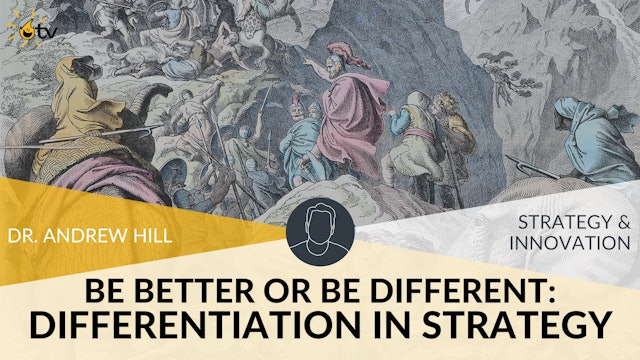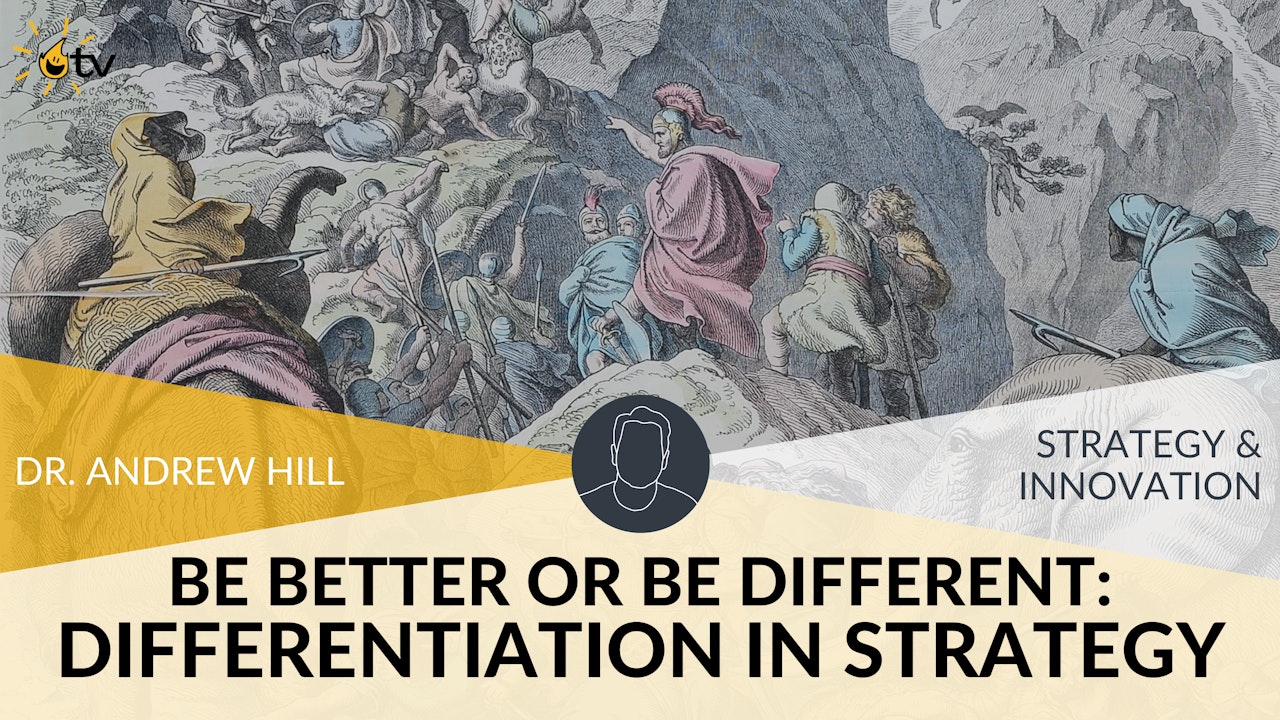Be Better, or Be Different? Differentiation in Strategy
A basic requirement of strategy is that it tells us (and our customers, clients, or other key stakeholders) why our products and services are needed. What makes us special? Fundamentally, a firm can be different in two ways: (1) it can do the same things as competitors, only better; or (2) it can do different things. In this program, we explore both aspects of strategy differentiation, and examine the connection between strategy and innovation.
Dr. Andrew Hill is co-founder of BurnBright. He has a Doctorate in Business Administration from Harvard Business School and a Master's in Public Policy from U.C. Berkeley. Prior to founding BurnBright, he served as a professor at the U.S. Army War College, a school for senior military and national security leaders, where he was the first Chair of Strategic Leadership.
-
Be Better, or Be Different? Introducing Necessity and Sufficiency in Strategy
Differentiation is at the heart of competitive strategy. It answers the question, Why you?
-
The Same, But Better: Necessary Causes in Strategy
Necessary causes are key to strategies for doing the same things as competitors, but better.
-
"THE" Way or "A" Way: Necessary & Sufficient Causes
What is a "necessary" cause? What's a "sufficient" cause? What difference does it make to strategy?
-
Levels of Competition and Sufficient Causes
What are "levels of competition"? This a key concept in strategic differentiation and innovation.
-
Different Paths to the Same Place: Lateral Differentiation
With lateral differentiation, we come up with new ways to achieve established objectives.
-
Competing at a Higher Level: Vertical Differentiation
With vertical differentiation, we compete at a higher level than competitors.
-
Transforming Necessity into Sufficiency: Strategic Innovation
Innovation occurs when we construct new pathways to our objectives, building on sufficient causes.
-
Andrew Hill Bio
745 KB
Before co-founding BurnBright, Andrew was a professor at the U.S. Army War College, where he taught senior national security professionals. As the War College's first Chair of Strategic Leadership, Andrew's research focused on connecting people, strategy, and innovation. He has a doctorate from H...










